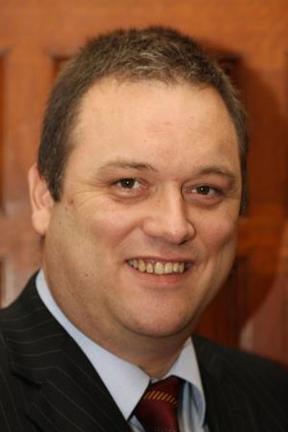“Falling officer numbers gives public poorer service”
RESPONSE times to dangerous and serious emergencies in Sussex Police are falling as the number of officers drop, an Open Meeting has heard.
Paul Sellings, chairman of Sussex Police Federation, (pictured) told officers there “are not enough police officers left to provide the public with the top quality service that they deserve.”
He told a meeting of officers in Brighton that “since October 2010 Sussex Police has lost 300 police officers including some who were forced to retire under Regulation A19.”
He added: “This is not a game. If it were you may think that it is one that we are currently trying to play with one hand tied behind our backs.
“Since the coalition government’s Comprehensive Spending Review of October 2010, Sussex Police has been required to make savings of £50M by 2015. When 80% of all our costs are staff wages it doesn’t take the brightest detective long to work out that Police Officer numbers had to fall.”
“Grade 1 emergencies” are when there is a danger to life, there has been use, or immediate threat of use, of violence, serious injury to a person and/or serious damage to property.
Mr Sellings stated that In 2010 Sussex Police attended 90% of Grade 1 emergency response calls within our own target time of 15 minutes.
But he told 300 officers at the meeting in Brighton that by July this year that figure had fallen to 72% and 7% did not get a response at all.
Mr Sellings added: “The reality is that there are not enough of us left to provide the public with the top quality service that they deserve. At the end of the day you get what you pay for.
“The experiences and feedback from officers on the street is that they drive from commitment to commitment to commitment without a break.
“Response times are going up and we are unable to resource Neighbourhood Policing and a demonstration at the same time.
“We need to be honest with the public and admit that if you pay less for something the only thing you will get in return is less. Policing is no different.”
Mr Sellings told the meeting, attended by chief constable Martin Richards, that there should be an end to single crewing in the force as it places officers attending incidents with potentially violent suspects in danger.
He concluded: “I know that despite no pay rises, no incremental rises, pension contributions going up, cost of living rising, short notice duty changes, single crewing and scrutiny by those who have not got the first idea about policing you will all continue to give of your best.”
Police and Crime Commissioner Katy Bourne was unable to attend the meeting, but she said in a statement: “The economical and operational changes to the policing landscape have been very demanding and will no doubt continue as we meet the challenges of new crime threats and policing reforms.”
In a statement Assistant Chief Constable Robin Merret told PoliceOracle.com: “We are aiming to put in place changes that will save money without the quality of services suffering.
“Improving our response times is a priority and we have set up a dedicated team to address it. They are considering steps such as increasing use of mobile technology to allow officers to stay out on patrol longer and complete paperwork more quickly, and reviewing how we make deployment decisions.”

